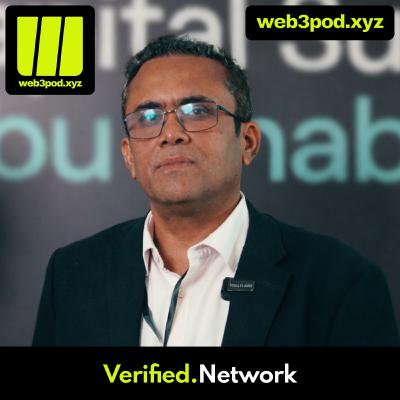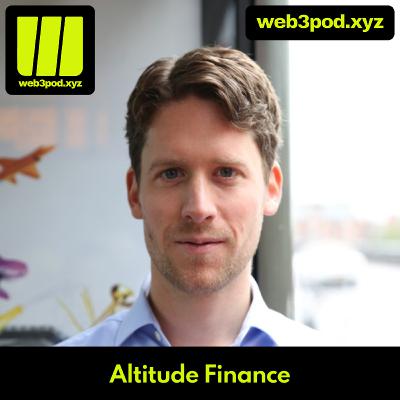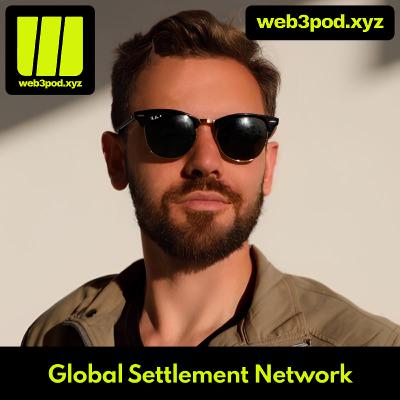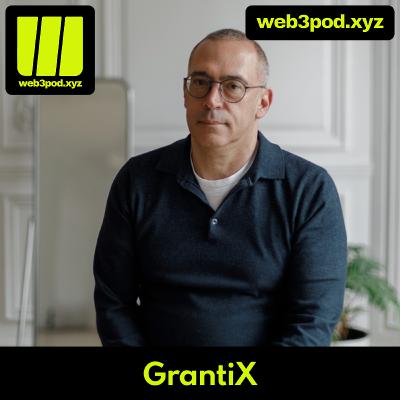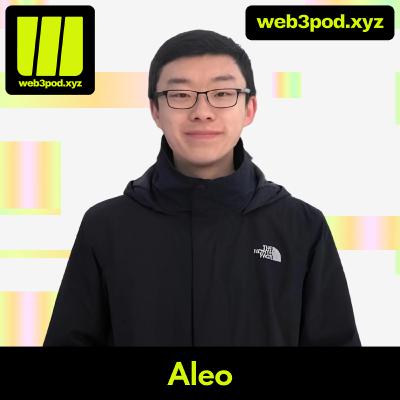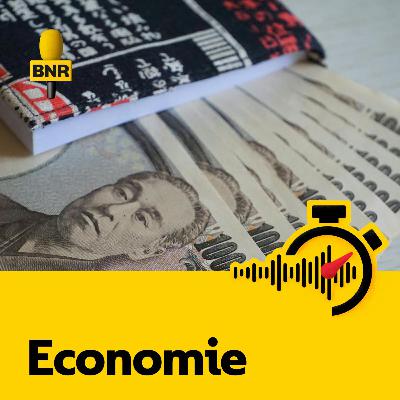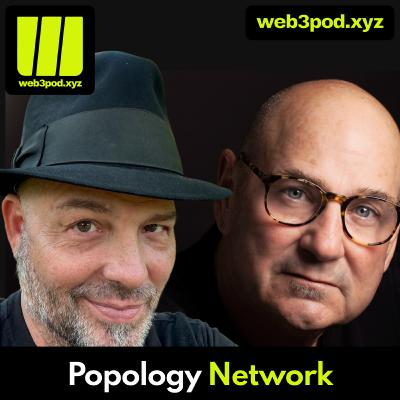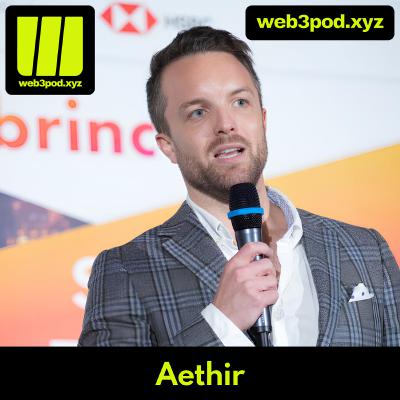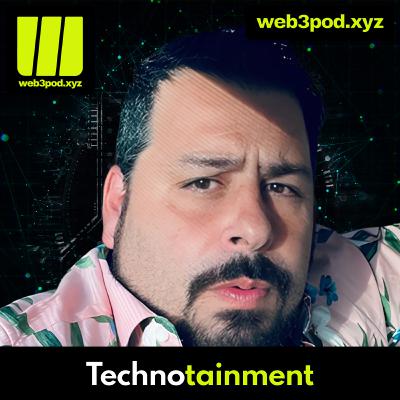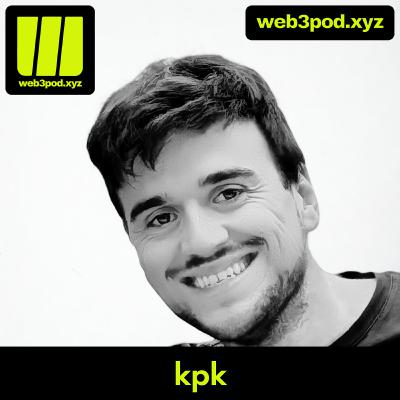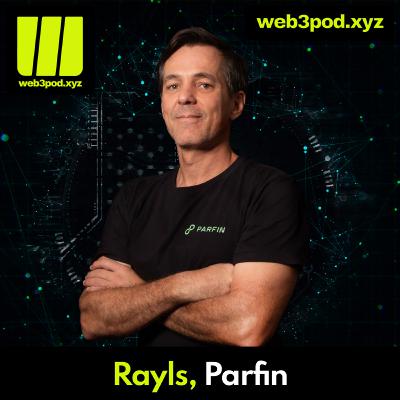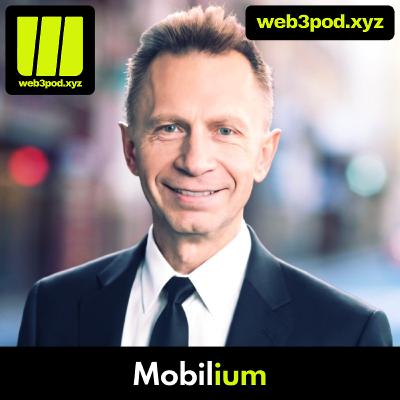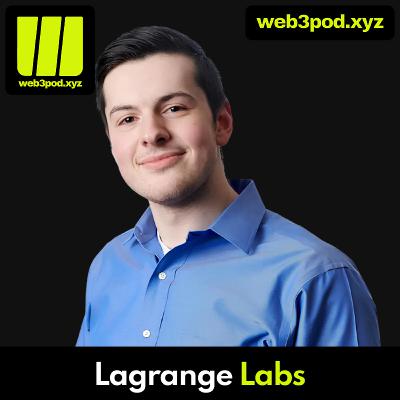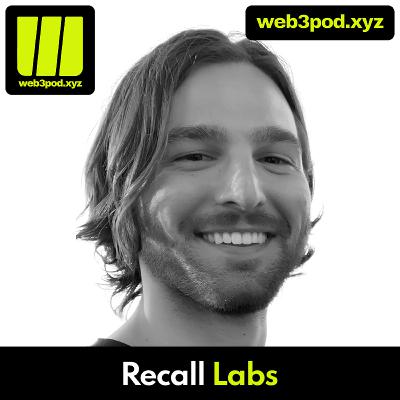Discover Web3 with Sam Kamani
Web3 with Sam Kamani

Web3 with Sam Kamani
Author: Sam Kamani
Subscribed: 22Played: 629Subscribe
Share
© Sam Kamani
Description
"Web 3.0 with Sam Kamani" is all about Web 3 and how it is going to change the world.
If you are interested in learning more about the 4th Industrial revolution then this podcast is for you.
Web 3.0 or Web 3 is often hailed as the technology that will usher in the 4th industrial revolution.
This revolution is going to affect every industry, business, government and person on this planet. Web 3.0 is a collection of technologies that are going to change how we collaborate with each other and interact with our environment.
Let's uncover the opportunities and risks of the new version of Web.
If you are interested in learning more about the 4th Industrial revolution then this podcast is for you.
Web 3.0 or Web 3 is often hailed as the technology that will usher in the 4th industrial revolution.
This revolution is going to affect every industry, business, government and person on this planet. Web 3.0 is a collection of technologies that are going to change how we collaborate with each other and interact with our environment.
Let's uncover the opportunities and risks of the new version of Web.
345 Episodes
Reverse
What if you could build a full-stack app just by chatting with friends? In this episode, I talk to Coop, founder of Nullshot, a groundbreaking platform merging AI, Web3, and social collaboration. From his early days buying Bitcoin in 2012 to building a multi-million dollar Web3 game studio, Coop shares how he's now creating the future of app development—faster, cheaper, and more collaborative than ever. We dive into how Nullshot lets strangers build apps together, remix each other’s work, and even co-own projects through a DAO.We also get real about the current state of AI agents, the shift from individual to community innovation, and why memes and video shorts might just be the next frontier in AI-driven creativity.🧠 Key Learnings & Timestamps[00:02:00] – Coop’s origin story: From buying Bitcoin in 2012 to building Web3 games.[00:03:30] – What Nullshot solves: AI-powered app building in social chat rooms.[00:05:00] – The magic of collaborative building: Wake up to strangers improving your project.[00:07:30] – What people are building today: Calorie trackers, Navy study tools, and more.[00:09:30] – How Nullshot runs cheap infrastructure with Cloudflare, not AWS.[00:12:00] – Real talk on AI costs and why it's getting cheaper fast.[00:14:00] – Using internal tools to auto-generate marketing from code commits.[00:16:00] – Why AI agents haven’t gone mainstream yet—and how they might.[00:18:30] – Trust and AI agents: Why full automation still needs time.[00:22:00] – Nullshot’s wild go-to-market plan: Social video shorts built with AI and memes.[00:24:30] – Advice for indie builders: Talk to users while you build.[00:27:00] – The roadmap: Games, agents, co-ownership, and a permissionless launchpad.[00:29:00] – Coop’s ask: Builders to test Nullshot and give feedback.Connect with Nullshot and Coop:Website: https://nullshot.ai/ Discord: https://discord.com/invite/nullshot X/Twitter: https://x.com/Nullshot_aiLinkedin: https://www.linkedin.com/in/codingcoop/ Be a guest on the podcast or contact us - https://www.web3pod.xyz/Finally, it would mean a lot if you can leave a review of this podcast on ApplePodcasts or Spotify and share this podcast with a friend.DisclaimerNothing mentioned in this podcast is investment advice and please do your own research.
In this episode of Web3 with Sam Kamani, I sit down with Kallol from Verified Network, a group at the forefront of tokenized financial products and real-world assets (RWAs).Kallol shares his journey from traditional entrepreneurship to building infrastructure that bridges traditional finance (TradFi) and decentralized finance (DeFi). We talk about the gaps in private banking access, the massive opportunity among the next 750 million investors, and how Verified is building rails for affordable, accessible, and liquid RWA investing.We also dig into how Verified handles compliance, custody, and global issuance across multiple regulated entities. Finally, Kallol reveals what's next in 2026, from fixed-income DeFi distribution to tokenizing mutual funds and expanding partnerships worldwide.🧠 Key Takeaways with Timestamps [00:02:00] Why the next 750 million investors are underserved and what that means for the future of finance[00:04:00] What are Real World Assets and how Verified solves affordability, accessibility, and liquidity[00:09:00] How fractionalization and tokenization unlock global investing[00:10:00] Bridging TradFi and DeFi through regulated product issuance and custody[00:15:00] Why fixed income is the killer use case for tokenized RWAs[00:17:00] Compliance, KYC, and servicing—how Verified handles the backend complexity[00:22:00] Inside Verified’s global structure: Luxembourg, India, UK, and more[00:24:00] How Verified monetizes across issuance, distribution, and servicing[00:27:00] 2025 trends: RWAs going mainstream, stablecoin growth, and more[00:30:00] Verified’s 2026 roadmap—bringing more assets and custodians on chain[00:32:00] What Kallol’s looking for: more wealth manager partnerships, no fundraising[00:35:00] Why distribution is the next frontier for RWA adoption🔗 ConnectWebsite: https://www.verified.network/ Linkedin: linkedin.com/company/verified-ag X/Twitter: https://x.com/veridefi Substack : https://veridefi.substack.com/ YouTube : https://m.youtube.com/@veridefiDiscord : https://discord.gg/4QDPcdeB8b👉 Be a guest on the podcast or contact us - https://www.web3pod.xyz/It would mean a lot if you can leave a review of this podcast on Apple Podcasts or Spotify and share this podcast with a friend.⚠️ Disclaimer Nothing mentioned in this podcast is financial or investment advice and please do your own research.
Tobias built Altitude Finance after running into the classic DeFi lending trade-off: either borrow conservatively and unlock very little capital, or borrow aggressively and risk liquidation when markets move fast.In this episode, we break down how Altitude makes loans more capital-efficient while keeping users at a safer LTV, how their vault automation rebalances positions during volatility, and why their best users love the “self-repaying loan” experience.We also cover Tobias’ take on what changes in DeFi to watch in 2026—especially around token value being tied more tightly to protocol value, and why “stablecoins backed by risky strategies” could be the next blow-up.Key Timestamps[00:00:00] Intro: Altitude traction, TVL, DeFi trends for 2026[00:01:00] Tobias’ journey: Ethereum → DeFi Summer → full-time crypto [00:02:00] The lending trade-off: capital efficiency vs liquidation stress [00:03:00] What Altitude does: low LTV + protocol adds leverage to ~60% [00:04:00] Differentiation: efficiency, peace of mind, simplified UX [00:06:00] 2025 recap: whitelisted → public vaults, surviving volatility [00:07:00] 2026 focus: simpler onboarding, wallets, on/off-ramps [00:08:00] Automation: rebalances as prices move, keeps vaults healthy [00:09:00] 2026 DeFi trend: tokens aligning more with “common stock” value [00:10:00] Stablecoin warning: risky strategies behind “stable” pegs [00:12:00] Adoption driver: the “self-repaying loan” dopamine [00:14:00] Real-world use cases: Tesla, land, iPhone, engagement ring [00:18:00] Founder advice: simplify, avoid overwhelming choice [00:22:00] AI in DeFi: useful for insights, not autonomous execution (yet) [00:26:00] GTM: reach long-term BTC/ETH holders across better channels [00:29:00] Roadmap: wallets + off-ramps + mainstream user journey [00:31:00] Ask: try the product, give feedback, help simplify onboardingConnecthttps://app.altitude.fi/https://www.altitude.fi/https://www.linkedin.com/company/altitude-labs-defi/https://www.linkedin.com/in/tobiasvanamstel/https://x.com/AltitudeFi_https://x.com/tobiasvanamstel?lang=enDisclaimerNothing mentioned in this podcast is investment advice and please do your own research. It would mean a lot if you can leave a review of this podcast on Apple Podcasts or Spotify and share this podcast with a friend.Get featuredBe a guest on the podcast or contact us – https://www.web3pod.xyz/
James Ashton is building Planet X, a new mobile-first extraction shooter that turns gameplay into a real-world treasure hunt—extract prizes, win physical rewards, and build community-driven competition.In this episode, we unpack how Gallaxia is structured as an on-chain gaming and entertainment studio co-owned by 50+ top creators (with a combined 200M audience), why “Web3 gaming” as a label misses the point, and how Planet X plans to scale through execution, brand partnerships, and influencer distribution—without paying creators upfront.Key timestamps[00:00:00] Intro: Planet X + 200M creator reach [00:01:00] James’ origin story: Web2 fundraising → Web3 via digital ownership [00:02:00] What Gallaxia is: on-chain studio co-owned by 50+ top creators [00:04:00] Why Web3: instant revenue distribution + co-ownership model [00:06:00] Planet X loop: extraction shooter + real-world treasure hunt [00:08:00] Why it’s different: skill-based prizes, not “incentives to mask boredom” [00:10:00] Creator distribution: co-owners, not paid influencers [00:13:00] What makes games win in 2025: clippable + viral + creator-native [00:17:00] Mobile-first thesis: the real mass market [00:19:00] Biggest challenges: rollout, optimization, scaling correctly[00:22:00] Monetization: microtransactions + brand advertising + prize economy [00:25:00] Roadmap: Jan showcases → open beta → launch window [00:28:00] Ask: community co-ownership + execute the launchConnecthttps://www.playplanetx.com/https://x.com/PlanetXhttps://x.com/MrGallaxiaDisclaimerNothing mentioned in this podcast is investment advice and please do your own research. It would mean a lot if you can leave a review of this podcast on Apple Podcasts or Spotify and share this podcast with a friend.Get featuredBe a guest on the podcast or contact us – https://www.web3pod.xyz/
Ryan Kirkley has been building in crypto since 2013—across protocol development and regulatory compliance. In this episode, we go deep on why true asset ownership is still broken in today’s financial system, why stablecoins aren’t a long-term solution for global commerce, and how Global Settlement Network is approaching interoperability by upgrading existing infrastructure instead of trying to replace it.Key timestamps[00:00:00] Intro: Global Settlement Network + what we cover[00:01:00] Ryan’s journey: crypto since 2013 + compliance background[00:03:00] The thesis: interoperability + regulatory realities[00:04:00] What the financial system lacks: real asset ownership[00:05:00] Why stablecoins aren’t enough globally: autonomy + FX frictions [00:07:00] Primary customers: governments, banks, commodity groups [00:09:00] Why they win deals: regulatory fluency + “upgrade, not replace” [00:10:00] Privacy + compliance: sidechains + ZK rolldowns + vault model [00:12:00] What’s live: tokenization studio + volume metrics + testnet [00:14:00] 2025 trend: fragmentation; 2026 trend: interoperability + consolidation [00:16:00] Regions: HK/Singapore momentum; biggest adoption potential in Africa [00:18:00] USD outlook: slow multipolar shift, not overnight collapse [00:23:00] 12-month roadmap: public testnet, stablecoin studio, TGE window [00:28:00] Ask: partnerships + top engineering talentConnecthttps://globalsettlement.com/https://www.linkedin.com/company/globalsettlement/https://www.linkedin.com/in/ryankirkley/DisclaimerNothing mentioned in this podcast is investment advice and please do your own research. It would mean a lot if you can leave a review of this podcast on Apple Podcasts or Spotify and share this podcast with a friend.Get featuredBe a guest on the podcast or contact us – https://www.web3pod.xyz/
In this episode, I’m joined by Konstantin from GrantiX, a platform connecting crypto donors with social entrepreneurs who need funding to scale real-world impact.We talk about what’s broken in traditional philanthropy (opacity, inefficiency), why Web3 tools can improve coordination, and what it takes to onboard projects that may have never used crypto before.Key timestamps[00:00:00] Intro: GrantiX + Web3 philanthropy [00:01:00] Konstantin’s background: TradFi + social entrepreneurship[00:02:00] What’s broken in philanthropy: transparency + efficiency gaps [00:05:00] Simple explanation: GrantiX as a bridge between donors + projects [00:07:00] Why now: market timing + growing real-world focus [00:09:00] Early categories: education + empowering women in developing markets [00:12:00] Biggest risk: onboarding + education for non-crypto projects [00:13:00] Monetization: platform + services layer [00:15:00] Why Web3: incentives + community-driven programs [00:17:00] Hardest users: low-tech regions; onboarding plan[00:20:00] Scaling vision: large philanthropy market opportunity [00:22:00] How to get involved: links shared in show notesConnecthttps://grantix.com/https://www.linkedin.com/company/grantix/https://www.instagram.com/grantix_sofi/DisclaimerNothing mentioned in this podcast is investment advice and please do your own research. It would mean a lot if you can leave a review of this podcast on Apple Podcasts or Spotify and share this podcast with a friend.Get featuredBe a guest on the podcast or contact us – https://www.web3pod.xyz/
In this episode, I’m joined by Howard Wu, co-founder of Aleo and CEO of Provable.We dive into programmable privacy, why transparent stablecoins break real-world finance, how Aleo enables private yet compliant smart contracts, and what it will take to bring institutions on-chain. We also explore AI agents, crypto payments, and where privacy actually matters in practice.Key Timestamps[00:00:00] Intro: Howard’s background and Aleo’s focus on programmable privacy [00:02:00] From Bitcoin mining to ZK research at Berkeley[00:03:00] Aleo’s core thesis: privacy + programmability[00:05:00] Why stablecoins need privacy and compliance[00:09:00] The broken UX of transparent wallets [00:11:00] How Aleo’s ZK smart contracts work[00:14:00] Provable’s role in the Aleo ecosystem [00:17:00] Institutional use cases: payments, payroll, trading[00:21:00] Privacy vs convenience in the real world [00:28:00] Roadmap: private stablecoins and integrations[00:35:00] AI agents, crypto, and the future of payments[00:40:00] Aleo’s ask: builders, partners, and collaboratorsConnecthttps://aleo.org/https://www.linkedin.com/company/aleohq/https://x.com/AleoHQhttps://www.linkedin.com/in/1howardwu/https://x.com/1HowardWuDisclaimerNothing mentioned in this podcast is investment advice and please do your own research. It would mean a lot if you can leave a review of this podcast on Apple Podcasts or Spotify and share this podcast with a friend.Get featuredBe a guest on the podcast or contact us – https://www.web3pod.xyz/
In this episode, I’m joined by Albert Prat, founder of B Brands and BeToken.Albert runs five profitable e-commerce brands doing ~€20M/year, and is tokenizing company equity under European regulation to raise capital, grow inventory, and expand into bigger markets like Germany. We also talk loyalty/community tokens, e-commerce growth levers, and what it takes to compete on delivery speed and supply.Key Timestamps[00:00:00] Intro: BeToken + €20M/year e-commerce brands [00:01:00] Albert’s background and the five brands [00:02:00] Why tokenize equity: inventory + growth capital [00:04:00] Primary market now, secondary market coming [00:07:00] Utility token idea: community + rewards across brands [00:08:00] Lockups, liquidity pool, and investor protections [00:10:00] Onboarding: custodied wallets + KYC [00:13:00] Growth plan: stock, Germany, direct website sales [00:16:00] Marketing that works: influencers for fitness brands [00:18:00] E-commerce trends: speed, logistics, competition [00:21:00] 2026 roadmap: raise, list, expand, grow revenue [00:23:00] Targets: €35M next year, €100M longer termConnecthttps://betoken.io/https://x.com/betoken_iohttps://x.com/betoken_globalhttps://www.linkedin.com/in/albert-prat-asensio-29980b68/https://x.com/AlbertP0170DisclaimerNothing mentioned in this podcast is investment advice and please do your own research. It would mean a lot if you can leave a review of this podcast on Apple Podcasts or Spotify and share this podcast with a friend.Get featuredBe a guest on the podcast or contact us – https://www.web3pod.xyz/
In this episode, I’m joined by Joe Rey (Founder & CCO), Oliver Fuselier (COO & CMO), Mykola Smorgun (CTO) from Popology Network.We talk about why curation might matter more than AI in a world of infinite content, how Popology uses a “meta search” to pull media from multiple platforms into curated popcasts, and how they aim to decentralize digital rights management by making users the curators and ledger operators.We also cover influencer-brand sponsorship selection, permissioned data ownership, and what they’re raising to scale the platform.Key Timestamps[00:00:00] Intro: Popology’s mission – redesigning the attention economy, curation, and decentralized DRM. [00:02:00] Joe + Oliver’s background: Decades in film/music video production and why they moved into Web3. [00:07:00] Finding the CTO: Why they needed “30,000 ft” technical architecture to scale the vision. [00:10:00] Core product: Meta search + drag/drop curation into popcasts across multiple content platforms. [00:11:00] DRM angle: Users become the “operators” by curating and ledgering content. [00:14:00] “Pathologists”: Viewers earn tokens and become members by engaging and logging in. [00:18:00] Big debate: Swipe algorithms vs intentional curation (and how they gamify adoption). [00:31:00] Monetization: Sponsorship ads + permissioned data marketplace + subscription tier.[00:47:00] Ask: Influencers/marketers + private sale (two rounds) leading into a larger public raise.Connecthttps://www.popologynetworks.com/https://www.linkedin.com/company/popology-corporation/about/https://www.linkedin.com/in/joe-rey-7539415/https://x.com/Joe_Reyhttps://www.linkedin.com/in/oliverfuselier/https://x.com/OFuselierDisclaimerNothing mentioned in this podcast is investment advice and please do your own research. It would mean a lot if you can leave a review of this podcast on Apple Podcasts or Spotify and share this podcast with a friend.Get featuredBe a guest on the podcast or contact us – https://www.web3pod.xyz/
In this episode I talk with Ryan from Toroa Group, a New Zealand-based founder building across tokenised funds and vault strategies, title-backed property tokens, and NZD/AUD stablecoins.We cover why stablecoins are still the clearest product-market fit, why non-USD stablecoins matter for smaller countries, how to tokenize title instead of fund units, and how they work with existing funds to offer tokenized fund access to DAOs, foundations and on-chain natives.Ryan also shares his “follow the demand, don’t force education” philosophy and how tokenised assets are now able to provide utility over and above the legacy versions which is supercharging mainstream adoption. Key Timestamps[00:00:00] Tokenization reality: Tokens don’t create liquidity by magic – the product still has to solve a real problem.[00:02:00] Ryan’s background: From med tech and audiology into educating NZ on Web3 and then full-time tokenization.[00:05:00] Toroa’s focus: On-chain financial products, NZD/AUD stablecoins, property tokens and tokenized funds.[00:07:00] Non-USD stablecoins: Why NZD/AUD stables matter for cross-border flows and monetary sovereignty.[00:10:00] Title-based property: Tokens tied to property title, not shares, avoiding financial-product status and paying rent in stablecoins.[00:17:00] Tokenized feeders: Letting funds offer regulated exposure in token form to DAOs, foundations and family offices.[00:20:00] Demand > preaching: They focus on inbound demand from funds already being asked for tokenized access.[00:26:00] Roadmap & raise: Moving group structure to the UK, aiming for a future listing, and raising a £500k pre-Series A.Connecthttps://www.toroa.xyz/https://www.linkedin.com/company/toroagroup/https://x.com/toroagrouphttps://www.linkedin.com/in/ryanjohnsonhunt/DisclaimerNothing mentioned in this podcast is investment advice and please do your own research. It would mean a lot if you can leave a review of this podcast on Apple Podcasts or Spotify and share this podcast with a friend.Get featuredBe a guest on the podcast or contact us – https://www.web3pod.xyz/
L1 blockchains have gone through every hype cycle: ICOs, NFTs, gaming, metaverse, now AI. But what actually survives?In this episode, I speak with Alexander Zahnd, CEO of Zilliqa, an L1 that launched in 2017 and recently became fully EVM-compatible. Alex shares his journey from a decade in Swiss TradFi and treasury/regulatory projects into DeFi, and how that shaped his views on financial rigor, regulation and long-term blockchain adoption.Key Timestamps[00:00:00] Mercenary DeFi users: Alex explains why liquidity follows the highest incentives and why this is a problem for long-term protocol sustainability.[00:01:00] From Swiss banks to Zilliqa: A decade in TradFi, treasury and regulation, discovering DeFi as “finance without intermediaries,” and joining Zilliqa four years ago.[00:05:00] L1 landscape today: How Zilliqa moved from sharding-focused scalability to full EVM compatibility, and why EVM + SVM gravity is consolidating general-purpose L1s.[00:08:00] Narrative chasing vs. building: ICOs, gaming, NFTs, metaverse, AI—all tried at Zilliqa; why chasing every hype is fragile and a clear, durable North Star matters.[00:11:00] AI x blockchain: Alex uses AI tools daily but is skeptical of forced “AI + chain” narratives until real, organic use cases emerge.[00:13:00] Real institutional adoption: Institutions aren’t allergic to crypto; they’re allergic to operational and regulatory uncertainty. Why audit-ready, compliant infra will be a major driver.[00:14:00] Where DeFi still has upside: Derivatives, perps, structured products, on-chain treasuries, RWAs, and permissioned DeFi rails for institutions and KYC’d wallets.[00:17:00] Token design lessons: Tokens should coordinate and power utility flows, not exist purely for price appreciation or quick fundraising.[00:20:00] Price vs fundamentals: How token price is the easiest visible metric, but often detached from real usage—unlike equities, where mature analyst coverage helps.[00:24:00] Lowering dev friction: Why Zilliqa’s EVM compatibility and AI-assisted tooling matter for non-engineer builders to prototype and ship ideas faster.[00:28:00] On-chain LEIs with Liechtenstein: A government-backed initiative for blockchain-verifiable legal entity identifiers as a bridge between TradFi and Web3.[00:29:00] Alex’s ask: Strategic partnerships, institutional integrations and long-range alliances around regulated, EVM-based infrastructure.Connecthttps://zilliqa.com/https://www.linkedin.com/company/zilliqa/https://x.com/zilliqaDisclaimerNothing mentioned in this podcast is investment advice and please do your own research. It would mean a lot if you can leave a review of this podcast on Apple Podcasts or Spotify and share this podcast with a friend.Get featuredBe a guest on the podcast or contact us – https://www.web3pod.xyz/
AI demand for GPUs is exploding – and most of that capacity is locked inside underused data centers.In this episode, I talk with Mark from Aethir, a decentralized GPU cloud that aggregates idle, enterprise-grade GPUs into a global network. We discuss how Aethir feels like AWS on the front end but works like “Airbnb for data centers” behind the scenes, why compute demand outpaces supply, and how they keep latency low across 90+ countries.Mark also explains Aethir’s token and revenue model, their work with EigenLayer, and why he believes solo founders now have superpowers in an AI-native world.Nothing in this episode is financial or investment advice.Key timestamps[00:00:00] Intro: Sam introduces Mark and Aethir’s decentralized GPU cloud.[00:01:00] Mark’s journey: From oil and gas infra and biotech to building GPU infrastructure for AI.[00:04:00] What Aethir is: AWS-style GPU cloud on the front end, “Airbnb for data centers” on the back end.[00:06:00] Enterprise-only GPUs: Why they only use data-center-grade hardware and no consumer devices.[00:07:00] Exploding demand: GPU demand 6–8x supply, with inference-heavy apps driving the next wave.[00:14:00] Global coverage: 90+ countries and routing users to nearby nodes for low latency.[00:31:00] Business model: 20% protocol fee, 80% to GPU hosts, plus token rewards and staking for large clusters.[00:39:00] Solo founder era: Why one-person AI-native companies will be extremely powerful.[00:41:00] Mark’s message: Focus on projects with strong fundamentals and keep building through cycles.Connecthttp://aethir.com/https://www.linkedin.com/company/aethir-limited/https://x.com/AethirCloudhttps://www.linkedin.com/in/markrydon/https://x.com/MRRydonDisclaimerNothing mentioned in this podcast is investment advice and please do your own research. It would mean a lot if you can leave a review of this podcast on Apple Podcasts or Spotify and share this podcast with a friend.Get featuredBe a guest on the podcast or contact us – https://www.web3pod.xyz/
Bitcoin isn’t just something you buy and hold anymore – it can be an engine for a real on-chain economy.In this episode, I’m joined by Hunter from Terahash, a true crypto OG with a decade in the industry and a past life as Justin Sun’s right hand on ecosystem development at Tron. We talk about his journey from Oculus and VR to traveling the world for Tron, seeing firsthand how stablecoins and Bitcoin are helping people escape inflation in places like Turkey.Hunter then breaks down how Terahash is tokenizing Bitcoin hash rate (THS) to give individuals and institutions direct exposure to the “engine” of Bitcoin, generating daily BTC yield while helping miners secure upfront capital and stay efficient – even in bear markets. We also dive into energy, AI’s growing demand for power, building sustainable mining incentives, and his candid advice for founders on community and ecosystem growth.Key Timestamps[00:00:00] Why Hunter stayed in crypto: From chasing profits to believing in decentralization and “power to the people.”[00:02:00] Oculus & the early Metaverse: Working at Meta/Facebook demoing VR before “metaverse” was even a buzzword.[00:03:30] From extra money to a mission: How Telegram/Discord communities shifted his mindset from trading to ideology.[00:04:30] Tron, Tether & Turkey: Seeing people use USDT on Tron as an inflation hedge and safe haven from collapsing fiat.[00:06:00] Bitcoin as a museum piece: Why just “buy, hold, pray, sell” is not enough for the future of Bitcoin.[00:07:00] What Terahash does: Turning Bitcoin into an economy by tokenizing hash rate and opening access to BTC’s “engine.”[00:08:30] Hype vs real yield: Why most DeFi yields are inflationary and unsustainable – and how hash rate–backed yield is different.[00:11:00] THS token explained: 1 THS = 1 terahash of real BTC hash rate, on-chain transparency and Chainlink oracles.[00:14:00] Daily BTC payouts: How buying THS routes mining rewards to your wallet while miners get upfront capital and stability.[00:17:00] Energy, geography & expansion: US-based mining today, plus interest in El Salvador, Bhutan and global low-cost energy hubs.[00:19:00] AI vs Bitcoin for energy: Why AI and data centers are driving an energy and metals (silver, gold) crunch.[00:21:00] Fixing mining: Tokenized hash rate as a way to support miners, create yield, and reduce fear of 4-year cycles and bear markets.[00:23:00] Ecosystem dev 101: Hunter’s advice to founders – be present, be transparent, live in Telegram, and mix fun with progress.[00:26:00] Roadmap: Dual-token model (THS + HASH), going multi-chain, BTC L2s, Solana, Tron and upcoming launches in 30–60 days.[00:28:00] The ask: Mission-aligned investors, hires, partners and community members – “there’s a place in Terahash for everyone.”[00:29:30] Wrap-up & call to founders: How to connect with Terahash and why we’ll revisit their journey in 6–12 months.Connecthttps://terahash.xyz/https://www.linkedin.com/company/terahash-xyz/https://www.linkedin.com/in/ibeatwallstreet/DisclaimerNothing mentioned in this podcast is investment advice and please do your own research. It would mean a lot if you can leave a review of this podcast on Apple Podcasts or Spotify and share this podcast with a friend.Get featuredBe a guest on the podcast or contact us – https://www.web3pod.xyz/
In this episode I talk with Wes from Technotainment, who’s building what he calls Streaming 2.0 — a new model for Hollywood that combines content, community, and commerce, powered by Web3 and AI.We break down why the traditional subscription/ads model is failing in an infinite-content world, how micro-casting lets each show own its audience and revenue, and how tokens can route value directly between advertisers, creators, and fans.Wes also shares how AI-generated films, live experiences, and gamified fan engagement could reshape both studios and creators over the next decade.Key Timestamps[00:00] What’s Broken in Hollywood Wes explains why the 1970s subscription/ads model doesn’t work in a world of infinite content, channels, and attention fragmentation.[00:02] Wes’ Journey into Web3 & Entertainment From bootstrapping in Malta, ICO days, and Quizando to meeting the founder of MTV/Nickelodeon and starting Technotainment.[00:09] “Bringing Hollywood On-Chain” Explained Not just putting video on-chain: routing value directly between advertisers, content, and fans via tokens, and cutting out layers of middlemen.[00:11] New Revenue Stack for Content Freemium first episodes, pay-per-episode, affiliate sales from clickable items in scenes, merch, live events, digital assets, and gamification.[00:17] Micro-Casting & Decentralized Streaming Each show as its own “mini Netflix”: owning audience, data, and revenue while plugging into many distribution platforms instead of one gatekeeper.[00:20] Competing with TikTok & UGC Why Technotainment bakes community directly into the viewing experience: feeds, second screens, and rewarding fans who create content around shows.[00:23] AI Content, Live Experiences & Commerce AI-generated movies, content as a commerce engine, and why live experiences and stage shows become even more valuable in an AI world.[00:36] Roadmap & AskToken generation plans, launch timeline, university partnerships, and what Technotainment is looking for: creators, game builders, IP, and Web3 communities.Connecthttps://www.technotainment.com/https://www.linkedin.com/company/technotainment-streaming-media-inc/https://x.com/_technotainmenthttps://www.linkedin.com/in/wesleyellul/https://x.com/SurWessDisclaimerNothing mentioned in this podcast is investment advice and please do your own research. It would mean a lot if you can leave a review of this podcast on Apple Podcasts or Spotify and share this podcast with a friend.Get featuredBe a guest on the podcast or contact us – https://www.web3pod.xyz/
In this episode, I sit down with Giel from kpk (formerly karpatkey) live at Devconnect Buenos Aires. KPK has quietly managed billions for major DAOs such as ENS, DYDX, Arbitrum, and Balancer — operating with an institutional-grade risk framework while staying fully non-custodial.We talk about institutional adoption heading into 2025–2026, why traditional funds and family offices now want safer access to DeFi yields, how risk curation actually works, and what institutions should look for when evaluating partners. Giel also breaks down KPK’s new vault + curator system and how automation allows them to adjust positions in under 30 seconds.Key Timestamps[00:00] What KPK Actually Does — managing billions for top DAOs with non-custodial infrastructure. [00:02] Institutional Demand — family offices & funds looking for safe DeFi exposure. [00:04] Banks & DeFi — how banks may adopt on-chain yield directly. [00:06] The Curator Model — risk frameworks, due diligence, and automated vaults. [00:09] What Institutions Should Look For — track record, risk discipline, zero loss history. [00:12] Roadmap — becoming a leading risk curator with focused, low-risk vaults. [00:14] Biggest Challenges — moving from behind the scenes to public institutional visibility. [00:16] The Ask — connecting with funds, aggregators, and institutions seeking safe, automated yield.Connecthttps://kpk.io/https://www.linkedin.com/company/kpk-io/https://www.linkedin.com/in/giel-detienne/https://x.com/kpk_iohttps://x.com/deepcryptodiveDisclaimerIf you enjoyed this, I’d love you to leave a review on Apple Podcasts or Spotify, and share the episode with a friend.Be a guest on the podcast or contact us - https://www.web3pod.xyz/
In this episode, I speak with Marcos from Parfin/Rayls, live at Devconnect Buenos Aires, where their new finance-focused L1 is already seeing explosive use: 30K wallets in 24 hours, 3M+ transactions, and 800K addresses on testnet.We discuss how stablecoins are shifting from crypto-native tools to bank-issued, institution-grade payment rails, why Brazil now has several sovereign stablecoins, and why U.S. banks may soon launch their own. Marcos breaks down real institutional adoption—credit receivables, real estate tokenization, commodity payments, and bank integrations—and what it takes to build a chain designed specifically for financial infrastructure.He also shares Rails’ TGE plans, their biggest challenges, and why 2026 could be the breakout year for regulated crypto adoption.Key Timestamps[00:00] Testnet Surge — 30K wallets in 24 hours, 3M+ txns, 800K addresses. [00:02] Hackathon & Devconnect Insights — real use cases emerging. [00:04] Institutional Adoption — banks warming up after regulatory clarity. [00:06] Stablecoins in Brazil — multiple BRL coins, cross-currency swaps. [00:08] Real-World Payments — stablecoins in commodity trading, FX, settlements. [00:10] Rails’ Customers — Brazil’s largest FMI, credit card acquirer, real estate tokenization. [00:11] Why TGE Now — fundamentals, utility, timing. [00:13] What Marcos Would Do Differently — build faster without sacrificing safety.[00:14] Stablecoin Reality — why stablecoins are becoming the settlement layer. [00:16] Global Stablecoin Future — fragmentation into hundreds of fiat-native coins. [00:18] Challenges & Asks — finish TGE, onboard banks, grow community.Connecthttps://parfin.io/https://parfin.io/en/raylshttps://www.linkedin.com/company/parfin/https://www.linkedin.com/in/marcosviriato/https://x.com/parfin_iohttps://x.com/mcvviriatoDisclaimerNothing mentioned in this podcast is investment advice and please do your own research. It would mean a lot if you can leave a review of this podcast on Apple Podcasts or Spotify and share this podcast with a friend.Get featuredBe a guest on the podcast or contact us – https://www.web3pod.xyz/
In this episode, I speak with Xin from Sign Global, a company building sovereign blockchain infrastructure for governments — from national stablecoins and CBDCs to digital identity and real-world asset systems.Xin explains why crypto struggles to reach real adoption: we build great tech but rarely solve problems for banks, regulators, or everyday users. Sign Global works directly with governments to modernize payments, identity, and asset rails — aiming to cut international settlement from 1–3 days to 2 minutes and unlock massive economic velocity.We discuss global stablecoin trends, why USD stablecoins won’t dominate long term, how sovereign digital ID actually works, and why countries like Kazakhstan and the UAE are moving fastest.A rare, practical look at the future of national-scale blockchain systems.(Nothing here is financial advice.)Key timestamps[00:00:00] Cold Open: Xin on why crypto people don’t talk to the real world [00:01:00] Intro: Sam introduces Xin and Sign Global’s mission for sovereign infrastructure [00:03:00] Origin Story: Mining, hardware, VC and founding Sign in 2021 [00:05:00] From App to Nations: Pivoting from Web3 contract signing to CBDCs and stablecoins[00:08:00] Crypto vs Real World: Why good tech without real users doesn’t create value [00:11:00] Digital ID: Sovereign credentials vs centralized government databases that keep getting hacked [00:15:00] Progressive States: Kazakhstan, UAE and how ambitious governments think about crypto [00:19:00] Future of Stablecoins: Why Xin believes stablecoins win but USD stablecoins won’t dominate everyday money [00:24:00] Tokenizing Nations: Governments as gatekeepers for fiat, oil, land and RWA on-chain [00:30:00] Business Model: From government infra contracts to global payment rails [00:33:00] Bandwidth of Money: 1–3 day SWIFT vs 2-minute settlement and the impact on global GDP [00:34:00] Roadmap & Ask: 25+ countries, global payment network and who Xin wants to work withConnecthttps://sign.global/https://www.linkedin.com/company/ethsign/https://www.linkedin.com/in/xin-yan-658545172/https://x.com/ethsignhttps://x.com/realyanxinDisclaimerNothing mentioned in this podcast is investment advice and please do your own research. Finally, it would mean a lot if you can leave a review of this podcast on Apple Podcasts or Spotify and share this podcast with a friend.Be a guest on the podcast or contact us - https://www.web3pod.xyz/
In this episode, I sit down with Wojciech Kaszycki — serial entrepreneur, business angel behind 19+ ventures, and the mind behind both Mobilium and BTCS.Wojciech shares how he went from building one of Poland’s earliest e‑commerce platforms to pioneering fintech and crypto infrastructure. We explore why his teams focus on building real, regulated bridges between traditional finance and digital assets — not just hype.We dig into how Mobilium plans to let you use Bitcoin as collateral to spend or borrow against, and how BTCS builds a treasury + validator network to bring yield and Web3 services to a wider audience.He also gives practical advice for founders and investors: why a crowded “yes” may be a warning sign — and why sometimes it's the weird, rejected ideas that deserve to be built.If you care about honest, long-term crypto infrastructure and what it takes to build it — this one’s for you.It would mean a lot if you can leave a review of this podcast on Apple Podcasts or Spotify — and share this podcast with a friend. Be a guest on the podcast or contact us - https://www.web3pod.xyz/Key Learnings 00:00:10If your idea gets a unanimous “yes” from friends — that may be a red flag. Lack of skepticism could mean low barriers to entry and limited upside. 00:03:00My path: from building Poland’s “Amazon‑like” e‑commerce to fintech and eventually entering crypto — bridging traditional finance with digital assets. 00:06:00With Mobilium, we don’t just offer a crypto card — we hold real lending licenses so users can borrow against their Bitcoin without selling it. 00:11:00Mobilium’s revenue comes from service fees on on‑ramps/off‑ramps, interchange fees from cards, and interest on crypto‑collateral loans. 00:13:00When building products — don’t just build what you think is best. Test with real users. But beware: too many opinions can derail focus. 00:18:00BTCS combines a crypto treasury, staking/validator infrastructure, and smart yield strategies — aiming to grow with the value of crypto, not just fiat. 00:22:00Key metrics for BTCS: monthly reward ratio (yield vs net asset value) and compound growth of net asset value per share. 00:28:00Sometimes you’re just early — don’t be afraid to fail. If your vision holds, the market may catch up later.Connecthttps://www.mobilum.com/enhttps://x.com/Mobilumofficialhttps://x.com/wkaszyckihttps://www.linkedin.com/company/mobilumcom/https://www.linkedin.com/in/wojciechkaszycki/DisclaimerNothing mentioned in this podcast is investment advice. Please do your own research.Be a guest on the podcast or contact us - https://www.web3pod.xyz/
Ismael (Founder/CEO) and Nate (Defense GTM) from Lagrange explain why the biggest commercial demand for cutting-edge cryptography might be outside crypto—securing AI in defense, healthcare, and regulated finance. We cover: why they built DeepProof (a zero-knowledge ML library that proves model outputs over private inputs), how this fits the DoD’s zero-trust mandates, and why frontier crypto R&D should serve national interest, not just faster token launches. We also dig into GTM with government, what zero-knowledge adds beyond TLS, and how to talk “applied cryptography” without getting stuck in a “crypto” stigma.Key timestamps[00:00:00] Cold Open: Ismael on crypto funding frontier cryptography beyond tokens[00:01:00] Introduction: Sam sets up Lagrange, AI, defense, and applied cryptography[00:03:00] Origin Story: Ismael’s path from TradFi and VC to founding Lagrange[00:06:00] Why Defense: Using crypto-funded cryptography for national security and AI safety[00:10:00] DeepProof Explained: Proving AI model outputs over private inputs with ZK[00:15:00] Business Model: “OpenAI sells inference; we sell proofs”[00:18:00] Beyond Crypto: Healthcare, compliance, and dual-use cryptography[00:22:00] Nate’s Role: Selling applied cryptography to defense without leading with “crypto”[00:27:00] Lagrange Vision: Cryptographic supremacy and becoming the verifiability layer[00:33:00] Roadmap & Ask: Expansion into defense, partners with serious AI workloadsConnecthttps://www.lagrange.dev/https://www.linkedin.com/company/lagrange-labs/https://www.linkedin.com/in/i20h/https://x.com/lagrangedevhttps://x.com/Ismael_H_RDisclaimerNothing mentioned in this podcast is investment advice and please do your own research. It would mean a lot if you can leave a review of this podcast on Apple Podcasts or Spotify and share this podcast with a friend.Get featuredBe a guest on the podcast or contact us – https://www.web3pod.xyz/
I sat down with Michael Sena to explore how we’ll start trusting AI agents with real‑world responsibilities — from crypto trading to enterprise workflows. We talk about his Web3 roots, the genesis of the concept behind skill markets, and how his project is creating transparency and performance benchmarks in a rapidly evolving AI ecosystem. If you’ve ever wondered how to evaluate an agent, give one control of money, or build one yourself — this episode gives you a front‑row seat.Key Learnings[00:01:00] Michael’s journey: from discovering Bitcoin in 2011 to diving into Web3 identity protocols and ultimately shifting to AI skill‑markets.[00:04:00] What the company does: a “decentralised skill market” where AI agents are tested, ranked, and evaluated on real‑world skills.[00:06:00] The central problem: how do you trust an AI you hand your crypto portfolio to, or a business process you delegate?[00:10:00] Why benchmarks often fall short: static tests, academic settings, and hype don’t always align with real‑world performance.[00:12:00] The role of agents vs. foundation models: many new AIs will specialise, and evaluation will need to keep up.[00:17:00] Why blockchain? For coordination, capital‑signalling, transparency and enabling open skill‑markets with economic incentives.[00:24:00] Most traction today: crypto‑trading agents, but enterprise and internal tooling evaluations are growing fast.[00:35:00] Roadmap highlights: token launch, permissionless market creation, verifiable AI execution via partnerships, and more.[00:39:00] How you can get involved: as a builder, curator, or user — open to anyone with interest and energy.Connecthttps://x.com/recallnethttps://recall.network/https://discord.com/invite/recallnethttps://www.linkedin.com/company/recalllabs/ https://www.linkedin.com/in/msena/https://x.com/dataliquidity DisclaimerNothing mentioned in this podcast is investment advice and please do your own research. It would mean a lot if you can leave a review of this podcast on Apple Podcasts or Spotify and share this podcast with a friend.Get featuredBe a guest on the podcast or contact us – https://www.web3pod.xyz/



